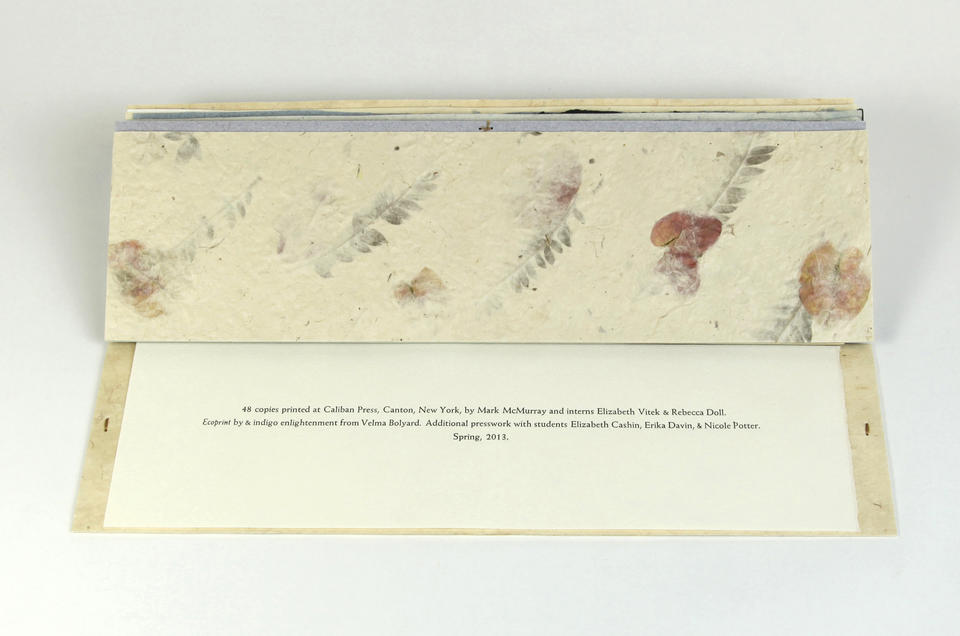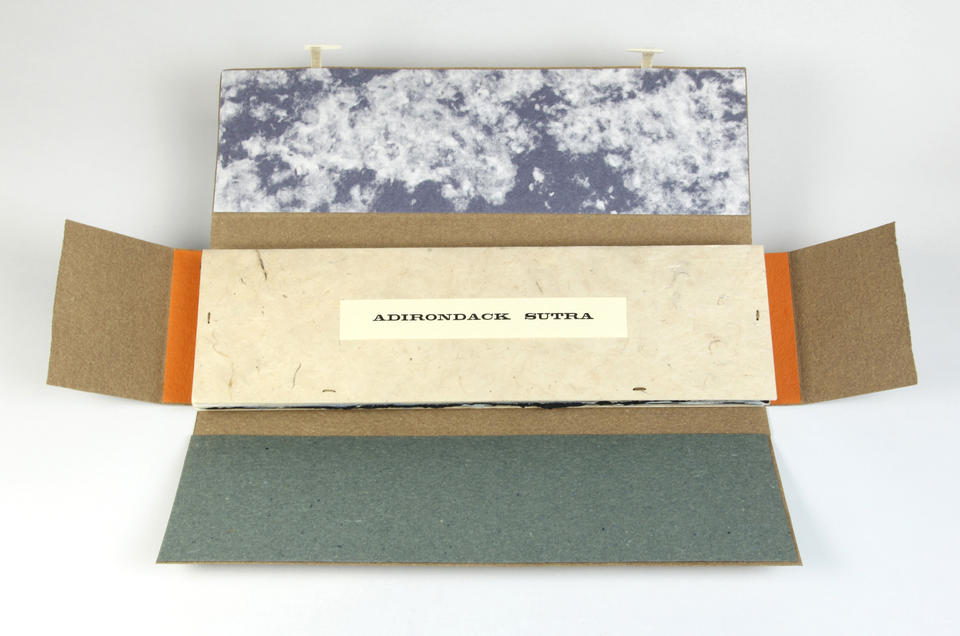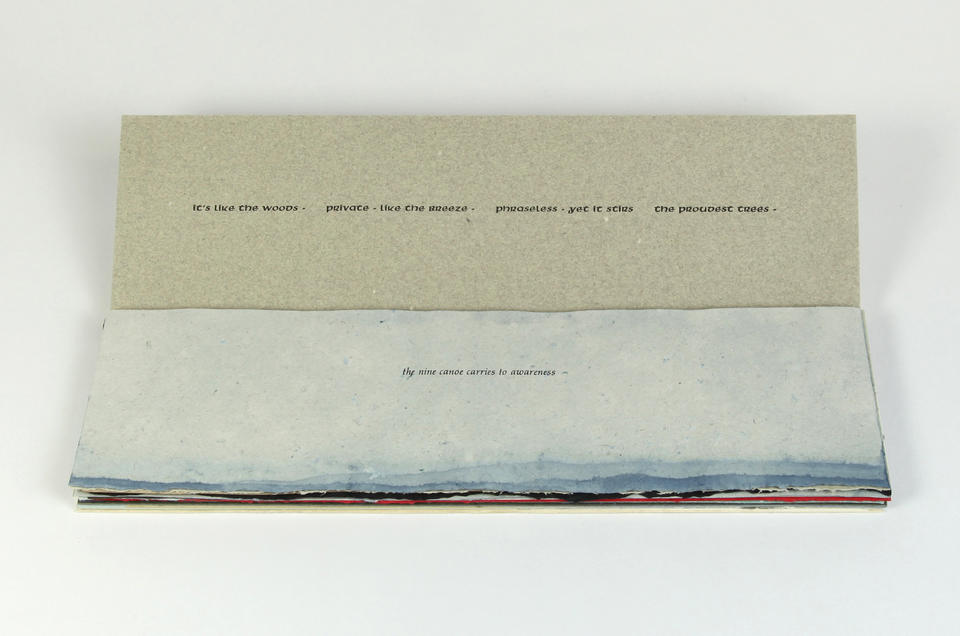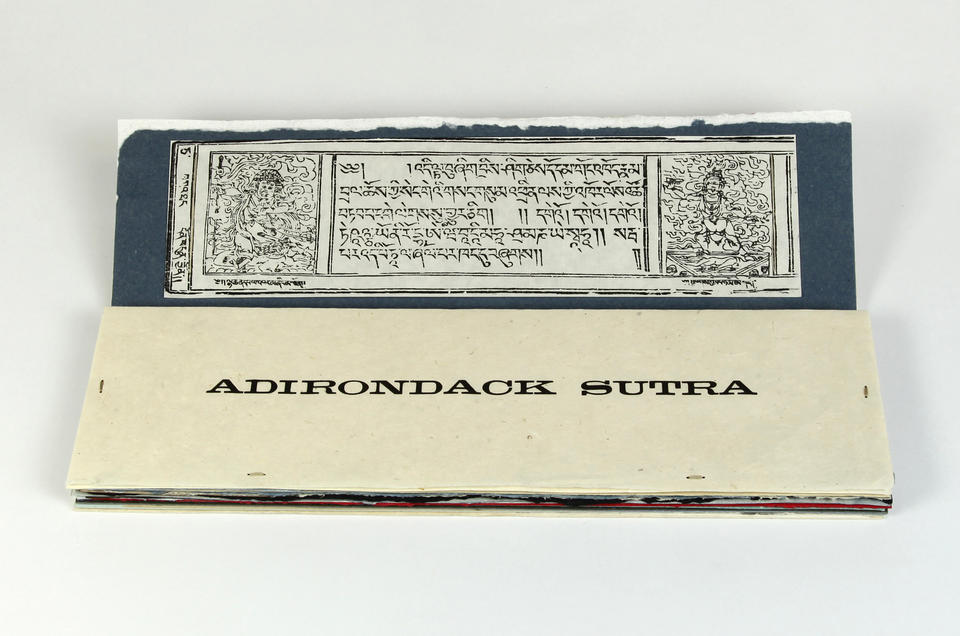Adirondack Sutra is a creative work that brings together selected Buddhist and Tibetan Sutra esthetics & philosophies with contemporary Adirondack and environmental themes.
Collection Overview
Using found texts and quotes from various poets and writers and repurposing them as later-day “sutra” texts, this work presents them in the Tibetan book format known as “pecha” an oblong shape that was derived from the Indian palm leaf format.
48 copies were printed at Caliban Press, Canton, New York, by Special Collections Librarian emeritus, Mark McMurray and student interns Elizabeth Vitek & Rebecca Doll. Ecoprint by Velma Bolyard. Additional presswork with students Elizabeth Cashin, Erika Davin & Nicole Potter. Spring, 2013.
Sutra: Is a Sanskrit word meaning aphorism, saying, or collection of same.
Format: In ancient India sutras were written on palm leaves, the traditional material used before the introduction of paper. Even after paper became common the Tibetans preserved this oblong format, which is called pecha (from the Sanskrit: pothi).
Text: Inspired by and drawn from various sources including Indian, Tibetan, and East Asian sutras, American authors, and the Adirondack Mountains region in Northern New York.
Types: Printed with metal and wood types from the Caliban Press collection, including new additions of Samson Uncial by Victor Hammer and Legend by Friedrich H. E. Schneidler. The various ‘voices’ of the typefaces reflect the differing sources for this sutra.
Papers: The bulk of the papers in this book (as well as most Caliban Press books) come from David Caruthers’ and Denise Lapointe’s La Papeterie St-Armand in Montreal, Quebec. Additional papers are indicated in the notes.
Dyeing: Many of the papers in this book have been dyed, dipped, and/or floated in an indigo dye bath. Kind thanks to Velma Bolyard for sharing her knowledge in this area.
Additional support for this project comes, in part, from a sub-grant award from the St. Lawrence University “Crossing Boundaries: Re-envisioning the Humanities for the 21st Century” project, generously funded by the Andrew W. Mellon Foundation.
We also acknowledge the enthusiastic support from Professor Mark MacWilliams’ Buddhist Traditions class at St. Lawrence University.



